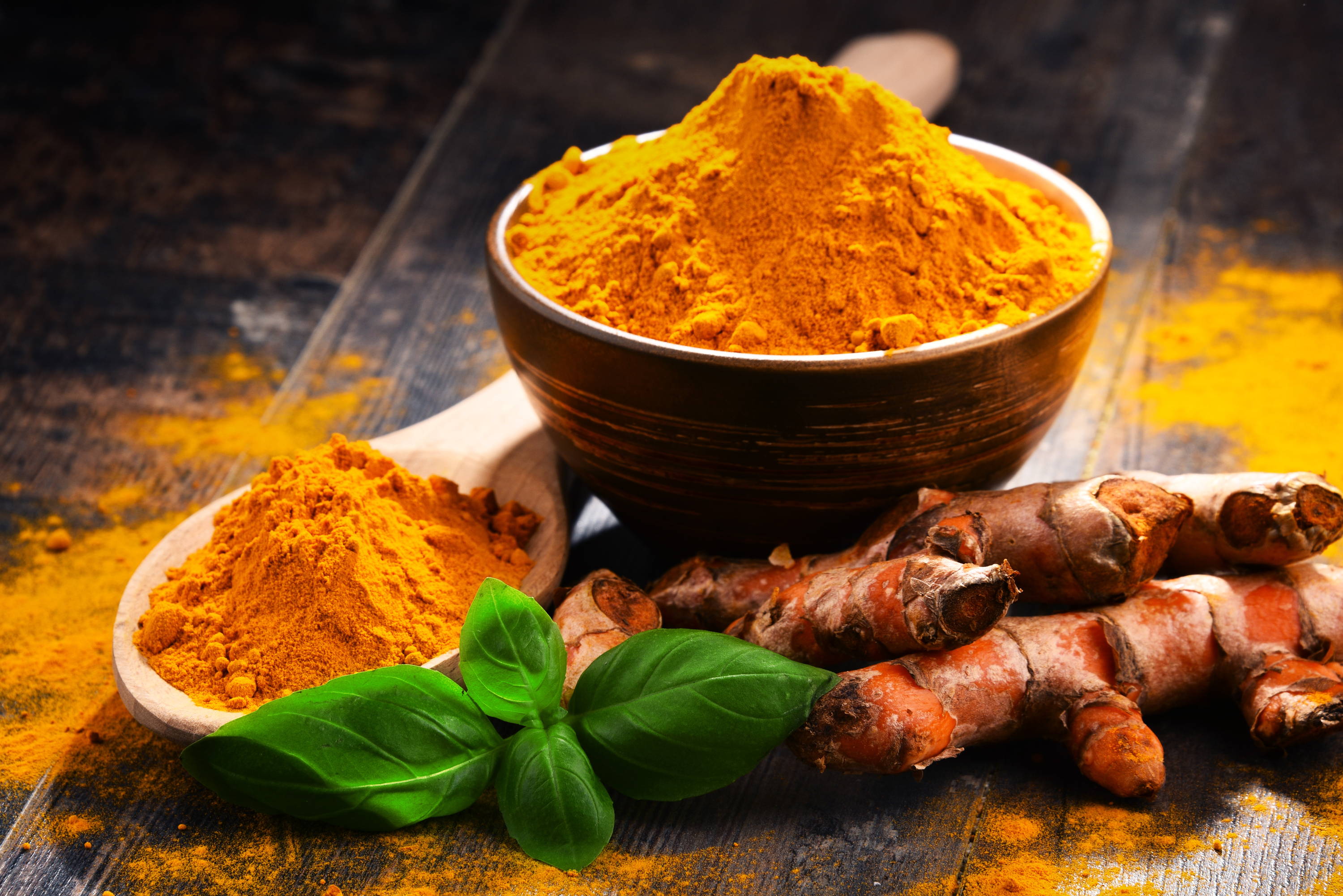Top 3 Super Herbs for Anxiety Relief
We all experience anxiety—a physical and mental sense of fear or panic that can overwhelm even the most stoic among us. Like other unfavorable human experiences such as fever or rash, anxiety is a normal physiological behavior hard-wired into our bodies to serve as an effective response to stressful circumstances. Anxiety is activated upon the perception of an impending threat—actual or perceived—that triggers our bodies to prioritize energy to more life-saving functions like increasing cardiac output, sharpening eyesight, and enhancing alertness while simultaneously suppressing less critical processes like digestion, urine production, and immune system functioning.1
Common Effects of Anxiety
- Increased heart rate
- Nervousness
- Worry and tension
- Inability to concentrate
- Sweating or shakiness
- Tightness in the chest
- Difficulty sleeping
- Elevated blood pressure
- Headaches
- Gastrointestinal dysfunction
- Immune suppression
Unfortunately, for too many—close to 30% of American adults—an anxiety disorder develops where overwhelming symptoms persist and become a chronic disruption to daily living, reducing quality of life and wreaking havoc on overall health and well-being.2 This is why being proactive and managing anxiety appropriately is an effective way to help prevent the development of diseases like diabetes, COPD, or heart disease.3
How can Z-SHIELD help?
One of the many truths Dr. Zelenko was passionate about reminding people of was the devastating effects that fear and anxiety have on the immune system and subsequently health and well-being. He knew that living in a state of fear or anxiety, like that instilled regularly by doom peddlers like the mainstream media, was a fast pass to disorder and disease. With this understanding, he set forth to create a natural blend of potent herbs that in bonus to supporting an optimized immune system, would also help reduce symptoms of anxiety exacerbated by a world saturated in stressors like ‘pandemics’, traffic jams, and rising food costs.
Z-SHIELD™ is Dr. Zelenko’s nutraceutical answer to a toxic environment teeming with threats to immune health, including stressors such as anxiety. Z-SHIELD™ is a specially formulated blend of natural ingredients including St. John’s wort, lemon balm, and turmeric that work together to support the immune system and further optimize its functioning through the secondary anti-anxiety effects embodied by these three herbs.
St. John’s Wort – Hypericum perforatum
Traditionally used to treat mild depression, this European flowering shrub named after John the Baptist has been shown to be effective for other mood disorders including chronic anxiety. It is thought this is done by helping increase levels of feel-good chemicals in the brain that in turn reduce symptoms of anxiety.4
St. John’s wort is available in a variety of forms including teas, extracts and supplements.5 It is safe and effective, but it is best to consult with your doctor before adopting any supplement regime.6
Lemon Balm – Melissa officinalis
Lemon balm has been used for centuries to help reduce anxiety and stress. A member of the mint family, it is grown all over the world and carries a wide array of medicinal properties. Alongside its relaxing anti-anxiety effects, it has also been shown to be an effective anti-viral and anti-bacterial agent that can improve sleep and digestion, as well as help calm muscle spasms.
Lemon balm contains powerful constituents including terpenes, tannins, and eugenol that make it effective at supporting the immune system and reducing anxiety. It is available in a wide array of forms including tea, extracts, tinctures and supplements. Lemon balm is safe and effective, but it is best to consult with your doctor before adopting any supplement regime.
Turmeric – Curcuma longa
Turmeric, a member of the ginger family, is a well-known spice used in cooking that has been valued for centuries for its medicinal uses in a wide array of disorders and diseases, including anxiety disorders, and cardiovascular, autoimmune, and neurodegenerative diseases. Yellow pigments within turmeric known as curcuminoids are the active compounds within the herb with curcumin being the most studied of these for its efficacy against disease. These compounds, particularly curcumin, help to boost levels of feel-good chemicals in the brain and acts as an antioxidant to help minimize cellular stress.8,9
Turmeric is available in various forms including supplement, extract, tincture, and teas. It is suggested to take alongside piperine, the active component of black pepper, as it helps boost absorption by up to 2000%. Other suggestions are taking it with fatty foods, combining it with the fat lecithin or opting for formulations that are lipid-based to help increase curcuminoid bioavailability.
Turmeric is safe and effective, but it is best to consult with your doctor before adopting any supplement regime.
Summary
In summary, there are a vast array of all-natural herbs that are available to support anxiety related symptoms—without the harmful side effects of pharmaceuticals. Check out Z-SHIELD™ today for a full list of ingredients that will help support you in body and mind.
Medical Disclaimer: The content in this article should not be taken as medical advice or used as a direct recommendation for any treatment or medication. Always consult with a properly licensed healthcare provider before making any changes to your current health and wellness routine.
References
1. Steimer, T. (2002, September). The biology of fear – and anxiety – related behaviors. Dialogues in Clinical Neuroscience, 4(3): 231 – 249. Retrieved from: https://doi.org/10.31887%2FDCNS.2002.4.3%2Ftsteimer
2. Any Anxiety Disorder. (n.d.). National Institutes of Mental Health. Retrieved from: https://www.nimh.nih.gov/health/statistics/any-anxiety-disorder
3. Mayo Clinic Staff. (2018, May 4). Anxiety disorders. Mayo Clinic. Retrieved from: https://www.mayoclinic.org/diseases-conditions/anxiety/symptoms-causes/syc-20350961
4. Nall, R. (2019, March 20). St. John’s Wort and Anxiety: The Good and the Bad. Healthline. Retrieved from: https://www.healthline.com/health/st-johns-wort-anxiety
5. St. John’s Wort. (n.d.). Mount Sinai. Retrieved from: https://www.mountsinai.org/health-library/herb/st-johns-wort
6. Mayo Clinic Staff. (2023, August 10). St. John’s Wort. Mayo Clinic. Retrieved from: https://www.mayoclinic.org/drugs-supplements-st-johns-wort/art-20362212
7. Lemon Balm. (n.d.). Mount Sinai. Retrieved from: https://www.mountsinai.org/health-library/herb/lemon-balm
8. Bouazzaoui, F., Kaladjian, A., & Ramaholimihaso, T. (2020, November 27). Curcumin in Depression: Potential Mechanisms of Action and Current Evidence – A Narrative Review. Frontiers in Psychiatry, 11. Retrieved from: https://doi.org/10.3389/fpsyt.2020.572533
9. Lee, B., & Hyejung, L. (2018, June 19). Systemic Administration of Curcumin Affect Anxiety-Related Behaviors in a Rat Model of Posttraumatic Stress Disorder via Activation of Serotonergic Systems. Evidence Based Complementary Alternative Medicine. Retrieved from: https://doi.org/10.1155%2F2018%2F9041309


Leave a comment